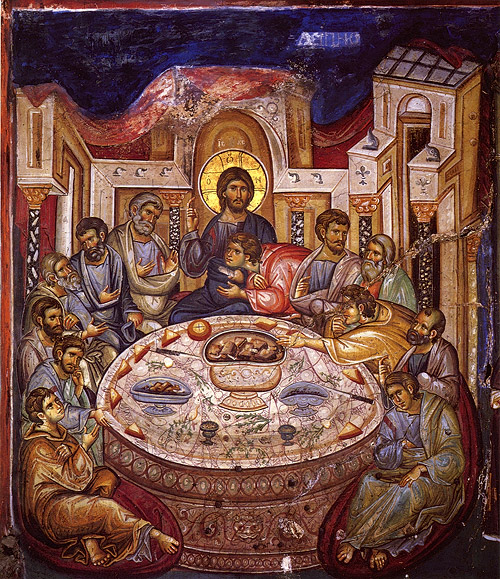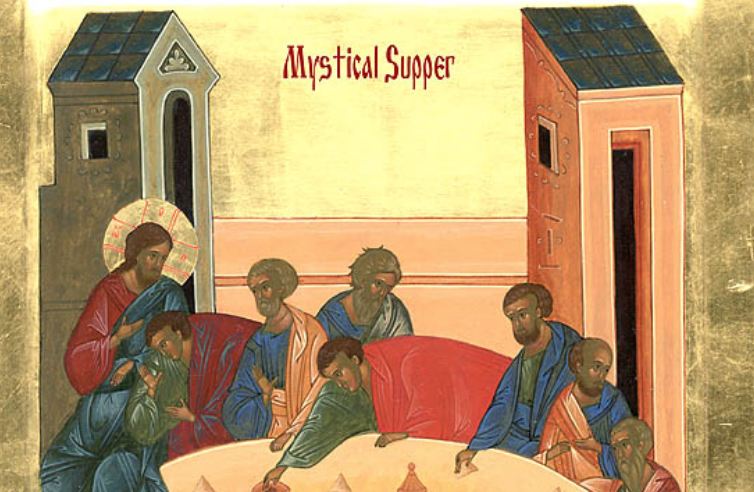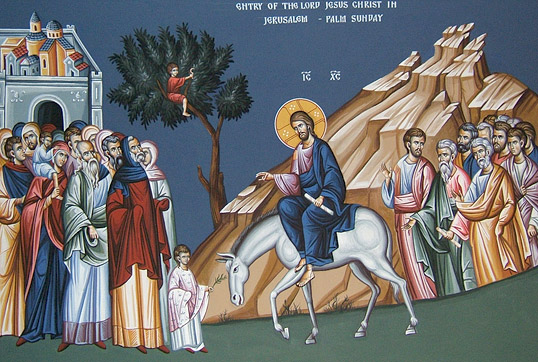Judas stretched forth his hand to the lawless. She sought the remission of her sins, while he took the pieces of silver. The harlot brought myrrh to anoint the Lord; the disciple made an agreement with the lawless. She rejoiced when she spent the precious myrrh; he set out to sell Him who has no price. She recognized her Master, while he departed from his Master. She was freed from sin, but he became the captive of sin.
Life & Faith
Holy and Great Friday
It was the sight we now commemorate in the present Church service, and behold in the sacred Image before our eyes. The sight was the Son of God, Who came down from the heavens, became man for the salvation of the human race, and was mocked and scourged by men.
What feeling, if not that of horror, should wholly envelope the heart at this sight? What state, if not a state of absolute bewilderment, should be our state of mind? What word could be pronounced at this sight? Does not every human word die upon the lips, before it can even proceed from the lips?
All those who came to this sight, beholding the things which were done, smote their breasts, and returned.
Holy and Great Thursday
Commemoration of the Mystical (Last) Supper
And as they were eating, Jesus took bread, and blessed it, and brake it, and gave it to the disciples, and said, Take, eat; this is my body. And he took the cup, and gave thanks, and gave it to them, saying, Drink ye all of it; For this is my blood of the new testament, which is shed for many for the remission of sins.
Mt. 26:26–28
 The Mystical (Last) Supper. Fresco, Catholicon of Vatopedi Monastery, Mt. Athos. 1312.
The Mystical (Last) Supper. Fresco, Catholicon of Vatopedi Monastery, Mt. Athos. 1312.On the day of the feast of unleavened bread, when according to the Law of the Old Testament a lamb was to be slaughtered and eaten, the hour was come that the Savior should depart out of this world unto the Father (cf. Jn. 13:1). Having come to fulfill the law, Jesus Christ sent His disciples, Peter and John, to Jerusalem to prepare the Passover, which, as the shadow of the law, He wanted to exchange it with the New Pascha—His own Body and Blood. When evening had come, the Lord came with His twelve disciples to a large, prepared upper room of a man who lived in Jerusalem (cf. Mk. 14:12–17) and reclined there. Telling them that the Kingdom of God, which is not of this world, and not earthly greatness and glory, but love, humility, and purity of spirit is what distinguishes its members, the Lord rose from the table and washed the feet of His disciples. Having washed the feet and again reclined, the Lord said to His disciples: Do you know what I have done for you? You call Me Teacher and Lord, and you say correctly, for I am exactly that. Thus, if I, your Lord and Teacher, have washed your feet, then you should wash each others’ feet. For I have given you an example, so that you would do the same thing I have done for you.
Great and Holy Thursday
 THURSDAY: The Last Supper
THURSDAY: The Last Supper
Two events shape the liturgy of Great and Holy Thursday: the Last Supper of Christ with His disciples, and the betrayal of Judas. The meaning of both is in love. The Last Supper is the ultimate revelation of God’s redeeming love for man, of love as the very essence of salvation. And the betrayal of Judas reveals that sin, death and self-destruction are also due to love, but to deviated and distorted love, love directed at that which does not deserve love. Here is the mystery of this unique day, and its liturgy, where light and darkness, joy and sorrow are so strangely mixed, challenges us with the choice on which depends the eternal destiny of each one of us. “Now before the feast of the Passover, when Jesus knew that His hour was come... having loved His own which were in the world, He loved them unto the end...” (John 13:1). To understand the meaning of the Last Supper we must see it as the very end of the great movement of Divine Love which began with the creation of the world and is now to be consummated in the death and resurrection of Christ.
On the Passion of Christ and the Book of Job
 The Old Testament is revealed in the New Testament. The Book of Job reveals its meaning in an amazing way. It is read during the church services during Great Lent. This book prepares us to meet with the Suffering and Risen Christ.
The Old Testament is revealed in the New Testament. The Book of Job reveals its meaning in an amazing way. It is read during the church services during Great Lent. This book prepares us to meet with the Suffering and Risen Christ.
Homily on Palm Sunday
 Rejoice greatly, O daughter of Sion; proclaim it aloud, O daughter of Jerusalem; behold, the King is coming to thee, just, and a Savior; he is meek and riding on an ass, and a young foal (Zach. 9:9).
Rejoice greatly, O daughter of Sion; proclaim it aloud, O daughter of Jerusalem; behold, the King is coming to thee, just, and a Savior; he is meek and riding on an ass, and a young foal (Zach. 9:9).

